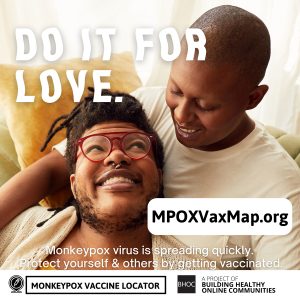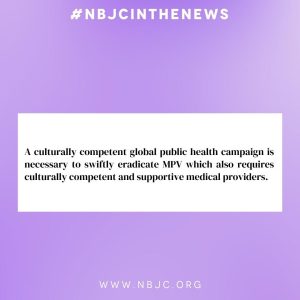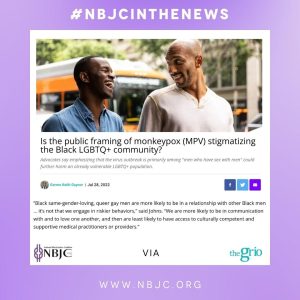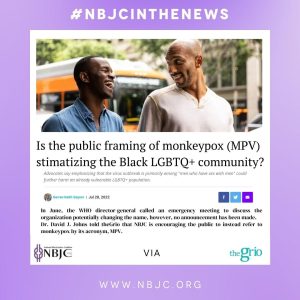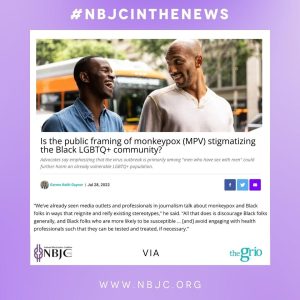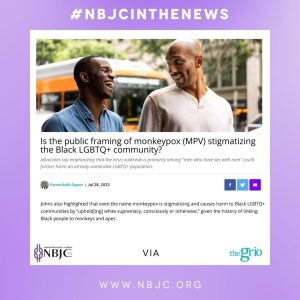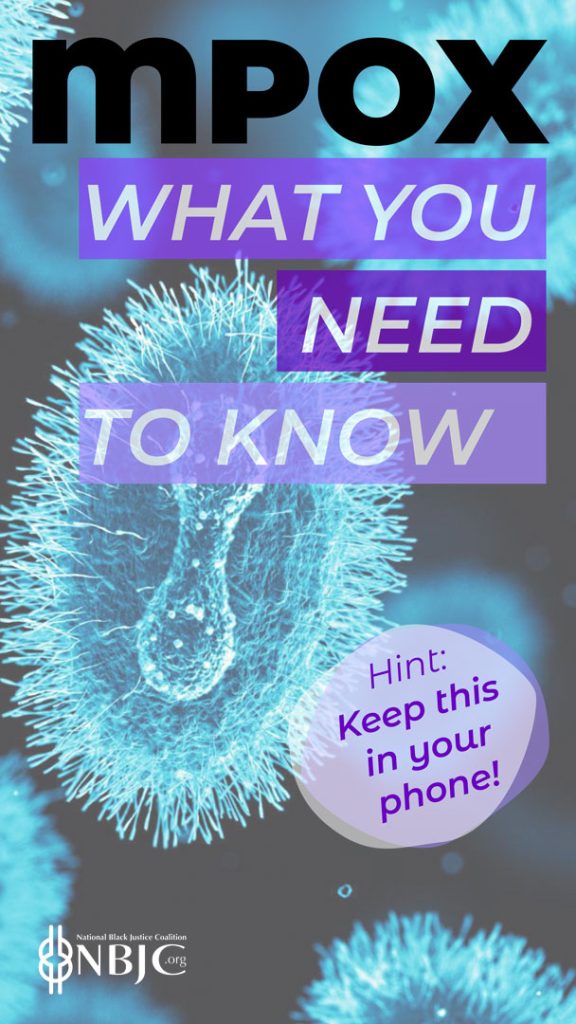Overview
Recently, the World Health Organization declared monkeypox (MPV) a global emergency. As it continues to spread, NBJC is working to ensure the Black LGBTQ+/SGL community, which this virus has disproportionately stigmatized, stays informed about prevention and how to access care. NBJC continues to work to change the name of the virus, increase usage of the acronym over the racially insensitive name, and encourage more diversity in the depiction of the skin tones in photos of people with symptoms to stop stigma and discrimination against the Black community. Additionally, NBJC continues to advocate that public health efforts increase awareness of non-sexual means of spreading the virus to ensure all communities and ages understand the breadth of behaviors that lead to a positive status. We hope that better education on how the virus is spread will lead to less stigmatization of same-gender loving and gay men alongside more significant prevention efforts by the entire global community to protect all of us from an additional pandemic.
Learn more about MPV, its history, the symptoms, and care by checking the CDC MPV Outbreak Page
How MPV Spreads:
MPV spreads through person-to-person contact, through direct contact with the infectious rash, scabs, or body fluids, and touching items such as clothing or linens that have previously touched infectious rash or body fluids. It can also spread through respiratory secretions or intimate physical touch during face-to-face contact.
MPV typically lasts for 2-4 weeks and can spread from when symptoms start until the rash has fully healed. You cannot spread the virus to others if you do not have symptoms.
Symptoms:
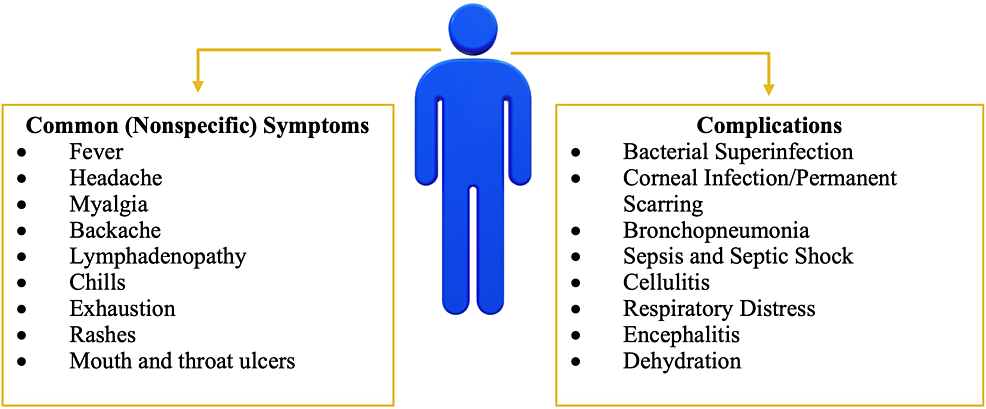
Vaccinations:
The CDC does not recommend widespread vaccinations for MPV but rather vaccinations for people who have been exposed to the virus and people who are more likely to get it. High-risk populations include people who have been identified to have contact with someone who has tested positive for MPV, people who are aware one of their sexual partners in the past 2 weeks has been diagnosed with MPV, and people who have had multiple sexual partners in the past 2 weeks in an area with known MPV cases, and people whose job may expose them to orthopoxviruses. Existing MPV and Smallpox vaccines are highly effective in protecting against the virus.
What you can do:
Wash your hands, keep your distance, choose your venues wisely, know the risk of anyone you will have close skin-to-skin contact with (including sex, hugs, kisses, or sports), and wear a mask. Quarantine until you have a test if you learn someone you’ve been close to has tested positive.
Call to Action:
Local and state health departments must push for complete case reports from providers along with daily updates to assist in tracking and containing the spread of the virus. You can find the contact information for your state and local health departments HERE. The CDC should publish the compiled data daily and in a way that allows for the nation to more clearly see what disparities exist for Black LGBTQ+/SGL people and other marginalized communities. You can find the contact information for your regional CDC field office HERE.
